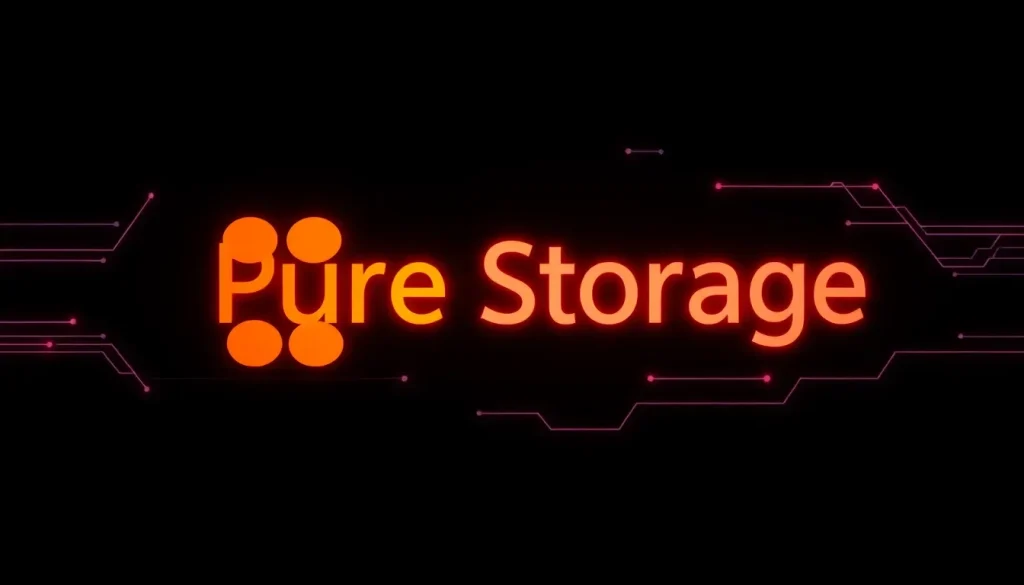Pure Storage evolves into a dataset management company

In a rapidly evolving technological landscape, Pure Storage is positioning itself not merely as a storage company, but as a comprehensive data management solution provider. This transformation is driven by its innovative approach to data management, leveraging advanced technologies like AIOps and artificial intelligence. Understanding this shift is crucial for businesses that rely on data-driven decisions.
In an insightful interview, Pure Storage CEO Charles Giancarlo elaborated on the company's vision, discussing the development of a robust dataset management framework that extends beyond conventional storage solutions. This article delves into the various aspects of Pure Storage's transformation and what it means for enterprises managing vast amounts of data.
- What type of company is Pure Storage?
- Understanding AIOps in the context of Pure Storage
- The evolution of data processing: From ETL to interpretive models
- Why dataset management matters
- Pure Storage's position in the data landscape
- Future prospects: Pure Storage as a dataset management company
- Pure Storage's commitment to sustainability
- Conclusion
What type of company is Pure Storage?
Pure Storage is a technology company primarily known for its data storage solutions. However, as it evolves, the company is increasingly recognized as a leader in data management. The shift represents a strategic pivot to address the growing complexity of data management in an era dominated by artificial intelligence.
By integrating storage with advanced data management capabilities, Pure Storage aims to simplify data accessibility and enhance performance in analytics and AI applications. This transformation can be summarized in several key areas:
- Unified Data Management: Pure Storage is merging storage and data management into a singular framework that optimizes how enterprises handle data.
- AIOps Integration: The application of AIOps helps automate and streamline data operations, reducing reliance on manual processes.
- Focus on Dataset Management: The company is emphasizing the importance of managing datasets effectively, enabling enterprises to derive insights more efficiently.
Understanding AIOps in the context of Pure Storage
AIOps, or artificial intelligence for IT operations, is a concept that leverages machine learning to enhance IT operations through automation, performance monitoring, and predictive analytics. Giancarlo highlighted that AIOps is not just a trend but an integral part of their operational strategy, particularly within the framework of the Enterprise Data Cloud.
In practical terms, AIOps can significantly reduce the time spent on mundane operational tasks. This leads to:
- Improved Efficiency: Automated processes free up human resources to focus on strategic initiatives.
- Faster Response Times: Predictive analytics allow for quicker identification and resolution of potential issues.
- Data-Driven Insights: Enhanced data analysis capabilities support informed decision-making.
The evolution of data processing: From ETL to interpretive models
Giancarlo drew an analogy between traditional data processing methods, like ETL (Extract, Transform, Load), and modern interpretive data models. Traditionally, ETL processes required significant time and resources, as data had to be extracted, transformed, and loaded into separate systems for processing.
However, with Pure Storage's innovations, this process is evolving. Here’s how:
- Batch Processing Limitations: Traditional ETL often leads to delays as data processing can take weeks or even months.
- Real-Time Data Accessibility: With the new paradigm, data can be accessed and processed more rapidly, potentially within minutes.
- AI-Driven Transformation: AI enhances data translation from raw formats into actionable insights, effectively replacing traditional ETL processes.
Why dataset management matters
As organizations increasingly depend on data for their operations, the significance of effective dataset management cannot be overstated. Giancarlo emphasizes that managing datasets involves more than just storage; it requires a strategic approach to ensure data is organized, accessible, and usable.
Key aspects of effective dataset management include:
- Data Tagging: Future innovations may allow organizations to tag data in real-time, enhancing its usability.
- Metadata Management: Utilizing metadata effectively can improve data organization and retrieval processes.
- Integration Across Platforms: Seamless integration with various data sources and applications streamlines operations.
Pure Storage's position in the data landscape
In the competitive landscape of data management, Pure Storage distinguishes itself through its unique offerings. Unlike traditional data storage solutions, Pure Storage is focusing on:
- Operational Flexibility: The company provides a unified operating system that integrates various data management tools.
- Real-Time Data Feeds: Organizations can utilize production-level data without duplicating it across multiple platforms.
- Enhanced Workflows: The ability to orchestrate workflows allows for the automation of complex data processes.
Future prospects: Pure Storage as a dataset management company
Giancarlo’s vision for Pure Storage extends beyond its current capabilities. As the company continues to innovate, it aims to redefine what it means to be a data management company. This shift is characterized by:
- Workflow Management: Emphasizing the management of workflows allows Pure Storage to facilitate operations beyond traditional storage.
- Collaborative Ecosystems: The potential for partnerships with other data management tools enhances the overall value proposition.
- Continuous Improvement: As technology evolves, so too will Pure Storage's offerings, adapting to the needs of modern enterprises.
To better understand the implications of these advancements, exploring additional resources can be beneficial. For example, the video titled “Introducing the Enterprise Data Cloud” offers insights into Pure Storage’s evolving role in data management.
Pure Storage's commitment to sustainability
As part of its broader vision, Pure Storage is also focusing on sustainability. The company recognizes the importance of reducing its carbon footprint in the data management space. This includes:
- Energy Efficiency: Implementing energy-efficient technologies in their storage solutions.
- Recycling Initiatives: Committing to responsible recycling practices for hardware.
- Sustainable Practices: Incorporating sustainability into the company's overall operational strategy.
Conclusion
As Pure Storage transitions into a dataset management company, it is redefining how organizations think about data. By leveraging AIOps, enhancing dataset management capabilities, and committing to sustainability, Pure Storage is setting a new standard in the industry. This evolution not only positions the company at the forefront of technological innovation but also provides businesses with the tools they need to navigate the complexities of modern data management.




Leave a Reply